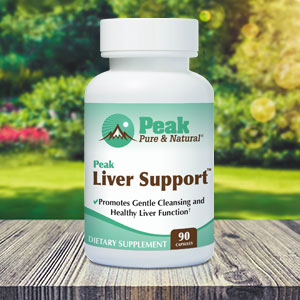Get Easy Health Digest™ in your inbox and don’t miss a thing when you subscribe today. Plus, get the free bonus report, Mother Nature’s Tips, Tricks and Remedies for Cholesterol, Blood Pressure & Blood Sugar as my way of saying welcome to the community!
The thyroid-poisoning additive in popular drinks

When it comes to keeping consumers safe from potentially harmful food additives, Europe is way ahead of the United States.
As soon as an additive is linked to health issues, European regulators tend to err on the side of caution.
For example, you may remember when I wrote about five food additives they’ve banned across the pond and beyond, but are still being fed to us in America — chemicals linked to cancer, endocrine disruption and type 2 diabetes.
Well, it looks like the U.S. Food and Drug Administration (FDA) is finally coming around on at least one of those additives found in drinks enjoyed by almost 65 percent of Americans daily — and linked to thyroid toxicity…
The additive that makes sodas toxic
In November 2023, the FDA proposed a measure that would ban the use of brominated vegetable oil (BVO) in the U.S.
Used to keep the citrus flavoring in beverages from separating, until now the FDA has considered its use in small quantities as safe.
But the agency was prompted to revisit this safety classification after scientific evidence from toxicology studies conducted in collaboration with the National Institutes of Health (NIH) found that an accumulation of BVO is toxic to the thyroid.
Your thyroid produces hormones that are instrumental in helping control blood pressure, body temperature, metabolism and response to other hormones. Disrupting the function of the thyroid means throwing these key processes out of whack.
And that’s not all. Brominated vegetable oil has also been linked with skin and mucous membrane irritation, fatigue, loss of muscle coordination and memory problems.
BVO was given the “Generally Recognized as Safe” (GRAS) designation by the FDA in the 1970s. However, as a result of these recent findings, the FDA now deems the continued use of BVO in food as unsafe.
Some beverage manufacturers jumped ahead of the game to remove BVO from product formulations a few years ago when questions first began to arise about its safety. One prominent example is PepsiCo, which removed BVO from its citrus-flavored Gatorade in 2013 because consumers perceived the product in a negative light.
But according to the Environmental Working Group (EWG), up to at least 90 products common on your grocer’s shelves contain BVO — mostly sodas, sports drinks and juice-like drinks with a citrusy flavor, including regional and store brands. You can view EWG’s complete list here.
The state of California has already made moves to ban the use of BVO and three other food ingredients within its borders: potassium bromate, propylparaben and FD&C Red No. 3, or red dye No. 3. By 2027, manufacturers will no longer be able to use these four ingredients in food sold in California.
The FDA says it continues to assess the safety of various chemicals in food based on the latest scientific findings and legal requirements, including the recent California law. In fact, the agency is in the process of reviewing FD&C Red No. 3 and says a decision on the chemical is forthcoming.
Going forward, the FDA plans to streamline the process of evaluating chemicals in the food supply by creating an “Office of Food Chemical Safety, Dietary Supplements, and Innovation.” This office is part of the agency’s proposed Human Foods Program (HFP) transformation to enhance its review of food chemical safety.
Dodging brominated vegetable oil
While the FDA’s announcement about BVO is good news, it could take a while for its proposed ban to take effect.
Until then, you’ll want to check your beverage labels to make sure BVO isn’t an ingredient.
Of course, one surefire way to reduce the danger of accidentally ingesting BVO is to ditch sodas —and it’s far from the only reason you should…
A large study found that postmenopausal women who drank one or more sweetened beverages per day were 78 percent more likely to develop liver cancer, compared with women who didn’t (or consumed less than three servings per month). The researchers also concluded that even consuming just one a day increased the likelihood of liver cancer by 73 percent!
And of course, aspartame, the most commonly used artificial sweetener in sodas has been listed as “possibly carcinogenic to humans” by the International Agency for Research on Cancer, the cancer research arm of the World Health Organization.
These reasons add up to why sweetened beverages are considered one of the two worst ultraprocessed foods for our health.
It looks like giving them up altogether is the wise thing to do.
Editor’s note: Did you know that when you take your body from acid to alkaline you can boost your energy, lose weight, soothe digestion, avoid illness and achieve wellness? Click here to discover The Alkaline Secret to Ultimate Vitality and revive your life today!
Sources:
FDA moves to ban drink additive linked to thyroid issues, memory loss — UPI News
California bans four food additives linked to health issues — UPI
FDA Proposes to Ban Food Additive, Continues Assessments of Additional Chemicals — U.S. Food and Drug Administration
Why Is Red Dye No. 3 Banned in Cosmetics but Still Allowed in Food? — Consumer Reports















